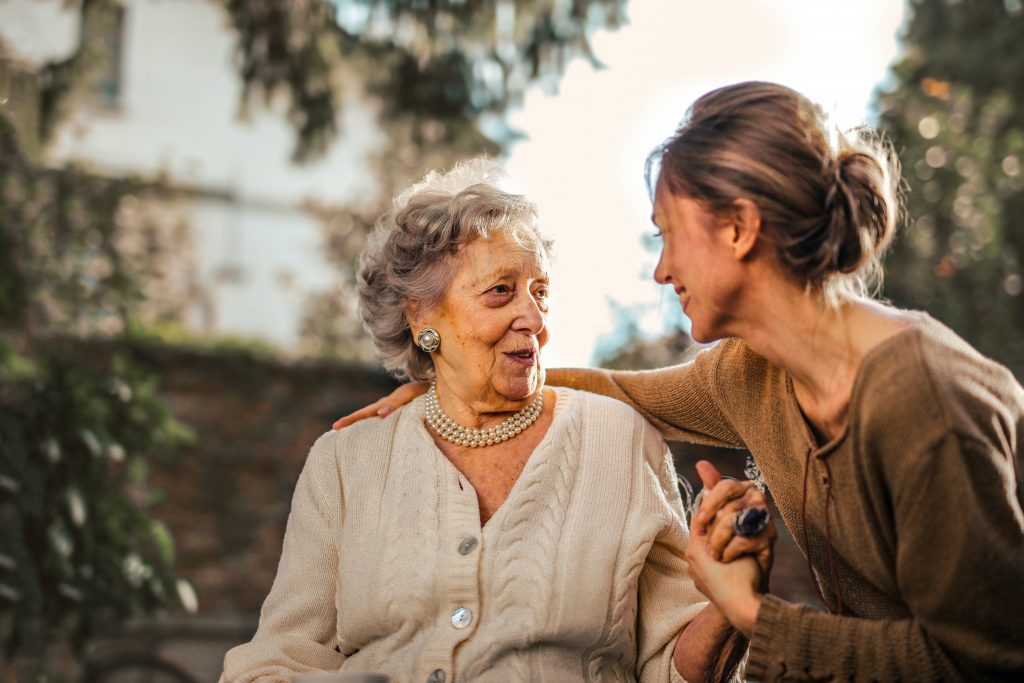Isolated at home as a caregiver during the pandemic
There is no doubt that being isolated at home when living with or caring for a loved one who has dementia can be very difficult and at times stressful. By following some of these tips, you will find that you both may become more relaxed and start to enjoy each day at a time.
Regular routine
Try and stick to a routine and introduce activities at certain points of the day. By splitting the day up, it can help your stress levels and give you both a structure and meaning. Variety is the spice of life!
Create a safe sensory home
Make sure there is plenty of light (this may also help reduce the risk misperceiving shadows) and avoid clutter. Try and avoid too much noise or visual distraction – only put the TV or radio on, one at a time. Sometimes voices coming from the radio may confuse a person who experiences hallucinations.
Be kind to your self
Be conscious of your breathing, take your time and think of a word, prayer or mantra you can focus on. Let the word mean how you want to feel, so for instance you may quietly repeat to yourself words such as Calm, Peace, Bliss, Breathe, Love. If your care partner won’t leave your side, repeat the words out loud and gently; they may feel the vibration and sound which may have a calming effect with them. It may not work the first time around but keep trying.
Helping to keep occupied
Sometimes, depending on the degree of a person’s dementia, doing repetitive jobs can be helpful, to keep occupied and help give them a feeling of purpose. This could include folding clothes, dusting the furniture, tending the plants in the garden. A memory box of objects to fiddle with can be helpful, this could include things that hold meaning to your partner in terms of their hobbies/jobs e.g. packets of seeds, safe tools, oily rags, wool, cooking implements.
Avoid confrontation
Try and practice patience, by deep breathing and sometimes walking away. Avoid arguing or disagreeing as their reality is very real to them, be practical and clarify feelings. e.g. “I know this is difficult for you, but I’m here to help, shall we have a look at this box of things together.”
Creative activities can help
Even if you or your care partner have never been particularly creative, you may be surprised by what you can enjoy together – drawing, painting or doing a craft project (you should be able to get the materials online when you are unable to go out). Remember, the end product is not necessarily important, it is more about being engaged in the moment in an enjoyable activity. https://www.alzheimers.org.uk/get-support/publications-and-factsheets/dementia-together/memory-alive-forget-me-not-crafts
The power of music
A singalong may be a good idea, if your partner has difficulty moving, try and sing a song or break out into a rhythm, often people who struggle with their mobility due to dementia or Parkinson’s disease, find release or more ease when adopting a rhythm Click here to see Dr Oliver Sacks speak with Henry after listening to music
How to communicate
When asking your care partner to do something, ask them in small bite sized chunks, they are likely to take more time to process information and then to respond. Always face them as their vision may be affected, they may not be able to see clearly from the side. They may struggle to understand what you are saying, mime or the use of visual props can help e.g. use a toothbrush to mime that you want them to clean their teeth, people may often mirror what others are doing. Give them time to express themselves too – the brain has slowed down and it is tiring to communicate when you have dementia, but is so important to help them.
Remember focus on what your loved one can do, not what they can’t
For more helpful tips, advice and support read Finding the Light in Dementia, A Guide for Families, Friends and Caregivers

